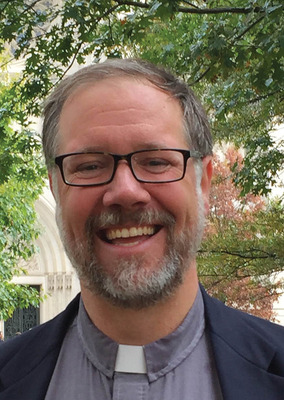Sanctuary
Resolved, That the 78th General Convention recommit to the spirit of the New Sanctuary Movement by supporting congregations so they can assist immigrant individuals, unaccompanied minors, families, and communities by being centers of information, services and accompaniment, and by supporting families facing separation in the absence of comprehensive, humane immigration reform.
- Recommit to Giving Sanctuary to Immigrants (Res. 2015-D057, 78th General Convention)
The Episcopal Diocese of North Carolina has always been a supporter of immigrants and, especially in recent times, comprehensive immigration reform. Whether in the form of partnerships, such as the Episcopal Farmworker Ministry, or providing churches and parishioners with resources to enhance their own education on the lives and concerns of their immigrant neighbors, the Diocese has stood with immigrants, for the rights of undocumented persons, and for the ever-increasing need for immigration reform in our country.
It is part of the church’s mission to serve as a safe space for persons at risk of being treated inhumanely, and to call those in positions of power to use their power in just and merciful ways. Churches may do this work in a variety of ways, beginning with getting to know our immigrant neighbors, receiving the gifts they bring, and offering spiritual, emotional and material support to them and their families. Befriending immigrant neighbors may also lead churches to advocate for legal reforms.
Sanctuary in broad terms means a place of refuge or safety and has been part of discussions about immigration for a long time. As people of faith and conscience, remembering the biblical command to Israel to welcome and honor foreigners and strangers because they, too, were strangers in Egypt, we want to take care of and stand with each other to ensure that everyone in our communities is respected and welcomed.
In some cases, Jesus Christ’s call to love God and our neighbor may lead a church to offer sanctuary by sheltering someone at immediate risk of being deported. Offering shelter to someone about to be separated from their children and community can be a faithful witness to God’s love and care for all persons, especially those in danger.
It is important to understand, however, that offering sanctuary—defined in this way—is an act of civil disobedience. Deliberately breaking the law for reasons of conscience is a morally and legally complex act, and it should never be undertaken lightly.
Because of the complexity and legal ramifications of sanctuary in the form of providing shelter to someone at risk, every church must do its own prayerful and thoughtful discernment about the ways in which it is and is not prepared to offer safe space to immigrants at risk of deportation. Each church contemplating offering shelter in this form must seek its own education to understand the risks and ramifications, not just for the congregation and its members, but even more importantly, to those they are trying to shelter.
The Diocese can provide advice on how to do the research and access the educational resources about sanctuary for immigrants. The Diocese does not have a unilateral, one-size-fits all policy on the types or conditions for offering sanctuary. We do, however, encourage that if a church is considering offering shelter, its leadership consult directly with an immigration attorney.
If your church is in a discernment process about offering sanctuary and would like educational resources on the subject, please contact your regional canon.
Download the church sanctuary primer.
*Note: The primer is intended only to provide starting information on sanctuary. It does not and cannot replace seeking professional legal advice with immigration specialists, a step the Diocese highly encourages for anyone considering the offering of sanctuary.
WHAT WE ALL CAN DO
Regardless of where your church might be in a sanctuary discernment process, we ALL can participate in creating communities of sanctuary, or places of mutual service, love and protection, anywhere and everywhere a person or people are vulnerable or targeted.
Individual, Family, Neighborhood
- Interrupting hateful speech or violence
- Accompanying a targeted individual in their daily errands
- Attending a “Crisis Scenario Community Response” training to practice how to respond to hateful acts
- Holding conversations in your neighborhood about what sanctuary means and could mean for you, your young people, and your neighbors
Institutional (School, Campus, Church)
- Creating institutional policies that ensure safety for campus residents
- Training colleagues in how to create a safe space at work
- Creating a team at your child’s school to ensure all children are safe at school
- Sheltering of individuals or families
City/State
- Working with your City Council to ensure that the rights of all residents are protected.
Finally, do not discount the importance of prayers. Millions of families in our country are living in a constant state of anxiety and insecurity about their residential status. Let us pray that Congress will find the courage and the will to accomplish the comprehensive immigration reform desired by the vast majority of our citizenship.
 Canon Missioner
Canon Missioner
